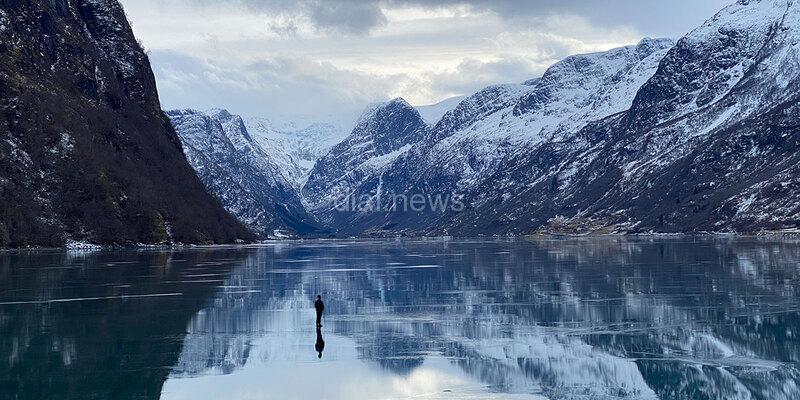Throughout, the movie is a great showcase for the promising visual talents of directors Stevie Salas and James Burns. Whether it’s in documentary passages, dreamy sequences with spare VFX, or instances of on-the-ground, cop-tussling journalism, “Boil Alert” shows that Salas and Burns have an exciting intuition as filmmakers. Sometimes, the touches can border on being too aesthetically over-the-top—its Terrence Malick-esque ethereal nature can slip into pushy movie trailer. But the various filmmaking pieces within “Boil Alert” fit like a massive quilt, and it’s always dedicated to the potential of the human spirit. As frustrating as the atrocities documented here are, the movie pulses even louder with pride, making space for an unbeatable sense of hope.

Margreth Olin’s “Songs of Earth,” executive produced by Liv Ullman and Wim Wenders, is a many-splendored thing: a home movie worthy of IMAX theaters. In a micro sense, it is about the director filming her elderly parents, documenting their love for each other and the vast mountains that neighbor their quaint home. But in a macro sense, with plenty of rapturous drone shots of a mountainous and still slice of Norway called Oldedalen, it contemplates our own relationship with nature in an era when global warming is speeding up the clock. Like a great love, nature shapes us; without nurturing, it starts to fade.
There are numerous staggering shots from cinematographer Lars Erlend Tubaas Øymo of Olin’s father, 82 years old and with two hiking sticks in hand, traversing the top of an ice-glazed rocks or a vast mirror of ice that reflects the breathtaking mountains above it. Her father is but a dot in these recurring images, often captured with drone cinematography (by Herman Lersveen) that naturally soars through landscapes that seem too pure for this world. Intercut with these passages are bits of Olin’s family history. “I’m amazed by the stories nature can tell,” her father says at one point. He talks about how his ancestors have shared love (a towering tree where a family member proposed) and tragedy (a flood in the early 1900s that wiped out nearly the whole lineage) with the nature they humbly stand before.
The grandeur of this documentary can’t be denied, even if its meditative way of assembling its footage, voice-over anecdotes, and general instincts can sometimes make it unfocused. But the deeply personal lens that Olin provides always makes this a nonpareil nature doc. As global warming naturally fits into the narrative, we feel a sense of loss for Earth as if it were our lineage who were soon passing.

